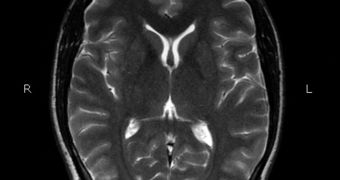A group of investigators is currently conducting a series of scientific studies on bluffing, an ability prised in gamblers, but which has deep roots in basic human traits. The research could help experts develop new therapies against some common psychiatric disorders.
By combining brain imaging technology with interactive games, neuroscientists at the Baylor College of Medicine (BCM) are hoping to gain some additional insight into how the brain controls the ability.
A successful bluff is heavily based on people's ability to infer other individuals' state of mind. This is a characteristic that has been with out species since our earliest ancestors appeared, and for good reason.
There are a lot of social benefits for detecting another person's mood and state of mind, such as for example making good business, gambling successfully, or preserving personal relationships.
Detecting another's perception of you is equally as important, but patients suffering from mental illnesses such as autism and borderline personality disorder cannot do this at all.
The BCM team hops to use their combined approach to understand why that happens, and where the brain fails. This knowledge is essential if they are to develop new drugs and therapies against these common conditions.
According to BCM neuroscientist Read Montague, the leader of the research effort, the ultimate goal is developing new diagnostics tools, that could be used to detect mental disorders as early as possible.
“This is an extremely promising approach to identifying the mechanisms that underpin these disorders. Psychiatry is the last medical specialty where the symptoms are equivalent to a diagnosis,” says University College London (UCL) psychiatrist Peter Fonagy.
“The capacity that breaks down the most in mental illness is 'social software,' such as the ability to pick up signals from people in groups and to collaborate,” Montague explains.
“We only poorly understand how the brain implements these things, or how it can break,” he adds, saying that this is one of the main reasons why the new research is currently underway.
The conclusions that will stem from this investigation will be of help to others except mental health experts. Salesmen, for example, will be able to increase their productivity significantly.
“If you're trying to sell a product, you don't want to assume everyone is the same. You might want to produce information in different ways based on the idea that people will respond to it differently,” says Duke University neuroscientist Scott Huettel
Details of the new research appear in the November 2 issue of the esteemed journal Proceedings of the National Academy of Sciences (PNAS), Technology Review reports.

 14 DAY TRIAL //
14 DAY TRIAL //